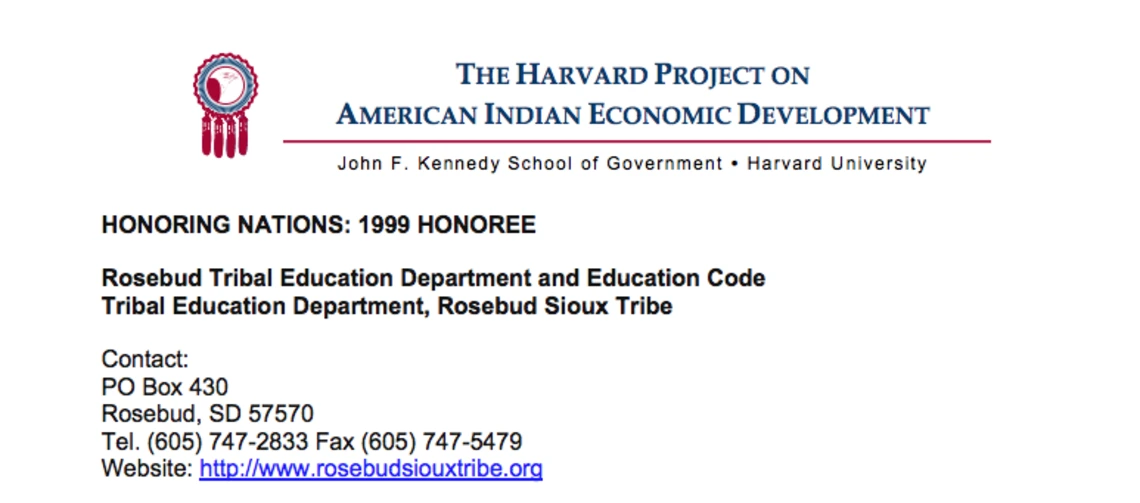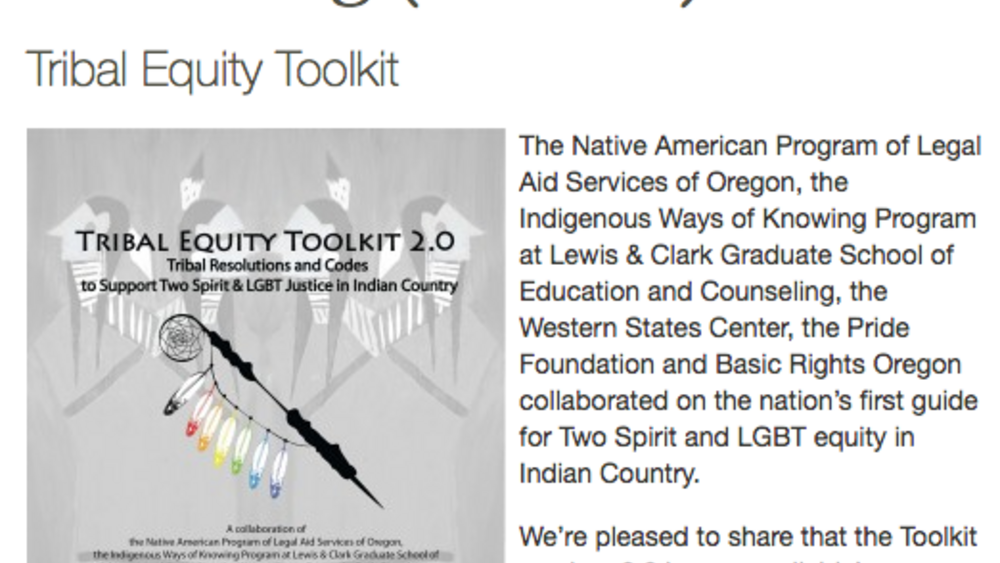Responding to disproportionately low academic attendance, achievement, and attainment levels, the Tribe created an education department (TED) in 1990 and developed a Code that regulates and coordinates various aspects of the tribal schools, public schools, and federally-funded Indian education programs on the reservation. Since the TED was established and the Code enacted, dropout rates have declined substantially and graduation rates have increased. By supplementing state and federal law, the Tribal Education Department and Code enables the Rosebud Sioux Tribe to play a greater role in the education of its youth. The Tribe is now responsible for critical components of formal education–curriculum, staffing, and funding–that, for decades, had been assumed by non-tribal governments.
Additional Information
"Rosebud Sioux Tribal Education Department and Code". Honoring Nations: 1999 Honoree. Harvard Project on American Indian Economic Development, John F. Kennedy School of Government, Harvard University. Cambridge, Massachusetts. 2000. Report.



